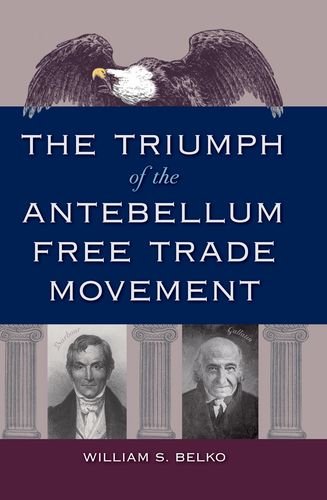

Most ebook files are in PDF format, so you can easily read them using various software such as Foxit Reader or directly on the Google Chrome browser.
Some ebook files are released by publishers in other formats such as .awz, .mobi, .epub, .fb2, etc. You may need to install specific software to read these formats on mobile/PC, such as Calibre.
Please read the tutorial at this link: https://ebookbell.com/faq
We offer FREE conversion to the popular formats you request; however, this may take some time. Therefore, right after payment, please email us, and we will try to provide the service as quickly as possible.
For some exceptional file formats or broken links (if any), please refrain from opening any disputes. Instead, email us first, and we will try to assist within a maximum of 6 hours.
EbookBell Team

4.1
70 reviewsIn the wake of the War of 1812, the Madison and Monroe administrations oversaw the institution of a series of protective tariffs meant to shield fledgling American industries from British product “dumping.” While southerners supported these protectionist measures early on, they quickly came to disapprove of them as severe impediments to trade with the West Indies, an important source of sugarcane and tobacco. In the decades that followed, tariffs became a hotly contested issue, the North favoring protectionism and the South advocating for free trade.
Debates over the new protective system involved political, economic, constitutional, and even social considerations. The debate set different regions and a multitude of socioeconomic interests against one another; ultimately, it helped spawn the second American party system and define the nature of partisan politics for decades.
In The Triumph of the Antebellum Free Trade Movement, William Belko provides a full and detailed investigation into the heated tariff debate of the late 1820s, focusing on its fascinating climax: the Philadelphia Free Trade Convention of 1831. As such, this intriguing volume is the first in-depth examination of the events directly preceding the famous Compromise Tariffs that were meant to bind Americans together but ultimately hastened the loosening of the cords of the Union.